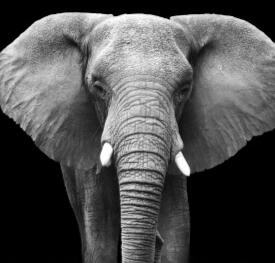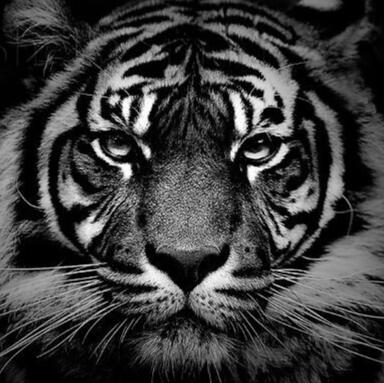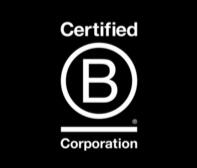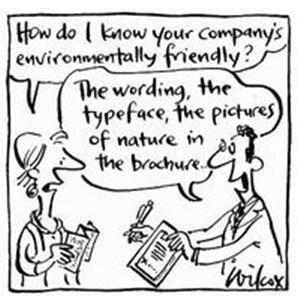Ethical Reports
EthicalReports.org is a online magazine, that explores and exposes greenwashing, while maintaining academic rigor.
About
EthicalReports.org is an online magazine, that explores and exposes greenwashing while maintaining academic rigor.

Ethical Reports is an independent, nonprofit member organization that works for truth, transparency, and fairness in the sustainability marketplace. In addition to our rigorous research, investigative journalism, and consumer advocacy, we work to inform purchase decisions, improve the products and services that businesses deliver, and drive regulatory and fair sustainability practices.We are passionate about our work because we know how much is at stake for you and the future of our planet. We succeed in our mission every time you get a little bit more informed, ethical products get more transparent, new technologies get more renewable, and the future gets that much greener. Together we are creating a fair, transparent, and ethical marketplace.
Blog
Subscribe to our newsletter.
Sign up with your email address to receive news and updates.
Ethical Definition of SustainabilitySustainability is the wholistic actions of humanity, empowering human and non-human animals to thrive and the natural environment to flourish, today and forever.
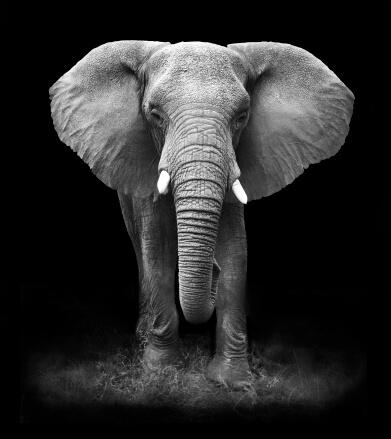
Sustainability is the wholistic actions of humanity, empowering human and non-human animals to thrive and the natural environment to flourish, today and forever.This definition is a derivation from both the Gro Harlem Brundtland (1987) definition “Humanity has the ability to make development sustainable to ensure that it meets the needs of the present without compromising the ability of future generations to meet their own needs” (Brundtland, 1987) and the John Ehrenfeld (2008) definition “Sustainability is the possibility that human and other forms of life will flourish on the planet forever” (Ehrenfeld, 2008, p. 49).The word wholistic with a ‘w’ is intentional. Used less than holistic, wholistic is not wrong, Merriam-Webster (n.d.) states, “having whole as a base, wholistic is often used by writers wanting to emphasize the entirety of something.” Wholistic used here means the entire ecological system and that actions are not made in a vacuum. Individual actions can globally affect the whole system, and humanity must work together to avoid a reductionist approach. Sustainable actions will push out unsustainable actions.Explicitly stating non-human animals reduces the anthropocentric bias and brings attention to other sentient beings within the definition of sustainability. A transition towards plant-based diets is supported by environmental, ethical, and public health considerations (Vinnari & Vinnari, 2014). In the 2005 reference period, total greenhouse gas (GHG) emissions from global livestock supply chains represent 14.5 percent of all human-induced GHG emissions (Gerber et al., 2013). Evelyn B. Pluhar (2010) stated that from ethical perspectives, “avoiding flesh farming through vegetarianism is morally justified” and “the continued raising and killing of sentient beings for our dinner tables is not [justified]” (p. 466-467). Kim et al. (2019) concluded that diets high in plant foods and low in animal foods were associated with a lower risk of cardiovascular disease.Thrive is used instead of Brundtland’s ‘meets the needs’ because human and non-human animals aspire to do more than exist or survive. The natural environment should not just be saved or sustained but allowed to “grow or develop in a healthy or vigorous way, especially as the result of a particularly favorable environment,” as Lexico (n.d.) defines flourish. Today and forever emphasizes that humanity needs to take action for the present, while also being accountable to all future generations so they can thrive and flourish.
^References ^^Brundtland, G.H., (1987). OUR COMMON FUTURE, Chapter 1, The Global Challenge Section 3, Sustainable Development Item #27 http://www.un-documents.net/ocf-ov.htm^^Ehrenfeld, J.R. (2008). Sustainability by Design. New Haven, CT: Yale University Press.^^Gerber, P.J., Steinfeld, H., Henderson, B., Mottet, A., Opio, C., Dijkman, J., Falcucci, A. & Tempio, G., (2013). Tackling climate change through livestock – A global assessment of emissions and mitigation opportunities. Food and Agriculture Organization of the United Nations (FAO), Rome.^^Kim, H., Caulfield, L.E., Garcia-Larsen, V., Steffen, L.M., Coresh, J., & Rebholz, C.M. (2019). Plant‐Based Diets Are Associated With a Lower Risk of Incident Cardiovascular Disease, Cardiovascular Disease Mortality, and All‐Cause Mortality in a General Population of Middle-Aged Adults. Journal of the American Heart Association.^^Lexico. (n.d., Definition 1). Flourish. In Lexico.com dictionary. Retrieved January 31, 2020, from https://www.lexico.com/en/definition/flourish^^Merriam-Webster. (n.d.). Wholistic. In Merriam-Webster.com dictionary. Retrieved January 30, 2020, from https://www.merriam-webster.com/words-at-play/wholistic-word-origin-and-use^^Pluhar, E.B. (2010). Meat and Morality: Alternatives to Factory Farming. J Agric Environ Ethics 23, 455–468. https://doi.org/10.1007/s10806-009-9226-x^^Vinnari, M., Vinnari, E. (2014). A Framework for Sustainability Transition: The Case of Plant-Based Diets. J Agric Environ Ethics 27, 369–396 https://doi.org/10.1007/s10806-013-9468-5
^
Truth about Tiger KingSustainability is the wholistic actions of humanity, empowering human and non-human animals to thrive and the natural environment to flourish, today and forever.

Sustainability is the wholistic actions of humanity, empowering human and non-human animals to thrive and the natural environment to flourish, today and forever.This definition is a derivation from both the Gro Harlem Brundtland (1987) definition “Humanity has the ability to make development sustainable to ensure that it meets the needs of the present without compromising the ability of future generations to meet their own needs” (Brundtland, 1987) and the John Ehrenfeld (2008) definition “Sustainability is the possibility that human and other forms of life will flourish on the planet forever” (Ehrenfeld, 2008, p. 49).The word wholistic with a ‘w’ is intentional. Used less than holistic, wholistic is not wrong, Merriam-Webster (n.d.) states, “having whole as a base, wholistic is often used by writers wanting to emphasize the entirety of something.” Wholistic used here means the entire ecological system and that actions are not made in a vacuum. Individual actions can globally affect the whole system, and humanity must work together to avoid a reductionist approach. Sustainable actions will push out unsustainable actions.Explicitly stating non-human animals reduces the anthropocentric bias and brings attention to other sentient beings within the definition of sustainability. A transition towards plant-based diets is supported by environmental, ethical, and public health considerations (Vinnari & Vinnari, 2014). In the 2005 reference period, total greenhouse gas (GHG) emissions from global livestock supply chains represent 14.5 percent of all human-induced GHG emissions (Gerber et al., 2013). Evelyn B. Pluhar (2010) stated that from ethical perspectives, “avoiding flesh farming through vegetarianism is morally justified” and “the continued raising and killing of sentient beings for our dinner tables is not [justified]” (p. 466-467). Kim et al. (2019) concluded that diets high in plant foods and low in animal foods were associated with a lower risk of cardiovascular disease.Thrive is used instead of Brundtland’s ‘meets the needs’ because human and non-human animals aspire to do more than exist or survive. The natural environment should not just be saved or sustained but allowed to “grow or develop in a healthy or vigorous way, especially as the result of a particularly favorable environment,” as Lexico (n.d.) defines flourish. Today and forever emphasizes that humanity needs to take action for the present, while also being accountable to all future generations so they can thrive and flourish.
What is a B CorpSustainability is the wholistic actions of humanity, empowering human and non-human animals to thrive and the natural environment to flourish, today and forever.
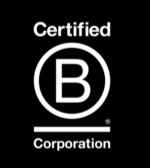
Sustainability is the wholistic actions of humanity, empowering human and non-human animals to thrive and the natural environment to flourish, today and forever.This definition is a derivation from both the Gro Harlem Brundtland (1987) definition “Humanity has the ability to make development sustainable to ensure that it meets the needs of the present without compromising the ability of future generations to meet their own needs” (Brundtland, 1987) and the John Ehrenfeld (2008) definition “Sustainability is the possibility that human and other forms of life will flourish on the planet forever” (Ehrenfeld, 2008, p. 49).The word wholistic with a ‘w’ is intentional. Used less than holistic, wholistic is not wrong, Merriam-Webster (n.d.) states, “having whole as a base, wholistic is often used by writers wanting to emphasize the entirety of something.” Wholistic used here means the entire ecological system and that actions are not made in a vacuum. Individual actions can globally affect the whole system, and humanity must work together to avoid a reductionist approach. Sustainable actions will push out unsustainable actions.Explicitly stating non-human animals reduces the anthropocentric bias and brings attention to other sentient beings within the definition of sustainability. A transition towards plant-based diets is supported by environmental, ethical, and public health considerations (Vinnari & Vinnari, 2014). In the 2005 reference period, total greenhouse gas (GHG) emissions from global livestock supply chains represent 14.5 percent of all human-induced GHG emissions (Gerber et al., 2013). Evelyn B. Pluhar (2010) stated that from ethical perspectives, “avoiding flesh farming through vegetarianism is morally justified” and “the continued raising and killing of sentient beings for our dinner tables is not [justified]” (p. 466-467). Kim et al. (2019) concluded that diets high in plant foods and low in animal foods were associated with a lower risk of cardiovascular disease.Thrive is used instead of Brundtland’s ‘meets the needs’ because human and non-human animals aspire to do more than exist or survive. The natural environment should not just be saved or sustained but allowed to “grow or develop in a healthy or vigorous way, especially as the result of a particularly favorable environment,” as Lexico (n.d.) defines flourish. Today and forever emphasizes that humanity needs to take action for the present, while also being accountable to all future generations so they can thrive and flourish.
